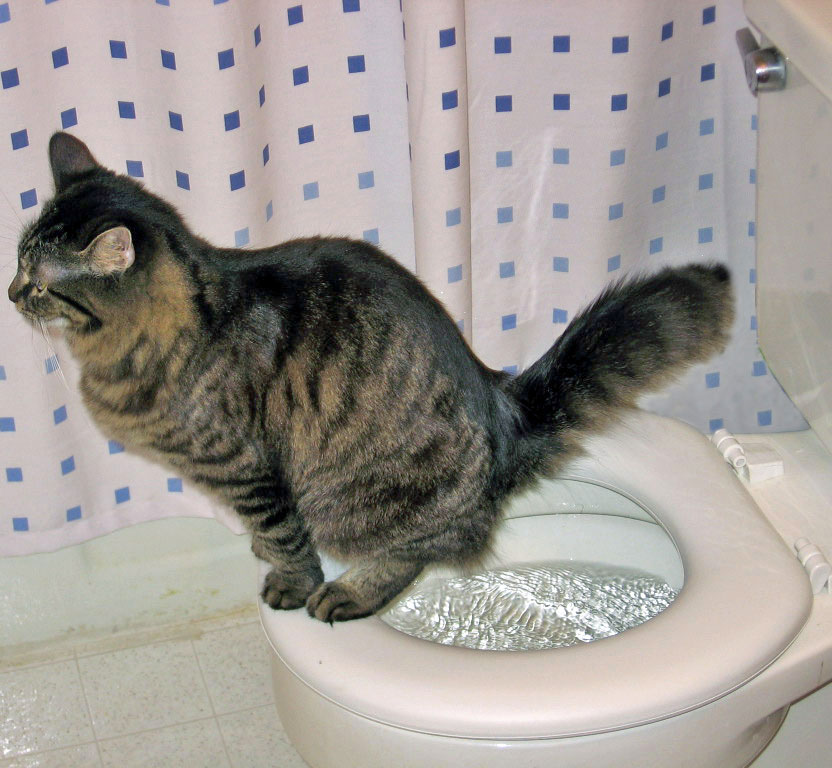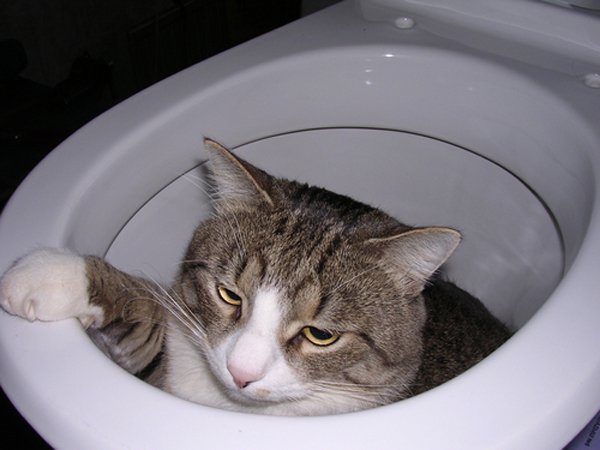Avoid Flush Cat Poop Down Your Toilet - Protect Your Pipes System
Avoid Flush Cat Poop Down Your Toilet - Protect Your Pipes System
Blog Article
We have come across this article relating to How to Dispose of Cat Poop and Litter Without Plastic Bags down the page on the web and think it made perfect sense to discuss it with you over here.

Introduction
As cat owners, it's important to bear in mind just how we get rid of our feline good friends' waste. While it might appear hassle-free to purge pet cat poop down the toilet, this method can have detrimental consequences for both the environment and human health.
Alternatives to Flushing
The good news is, there are more secure and more accountable means to get rid of pet cat poop. Consider the following options:
1. Scoop and Dispose in Trash
The most common method of taking care of pet cat poop is to scoop it right into an eco-friendly bag and toss it in the trash. Make sure to utilize a specialized trash scoop and get rid of the waste immediately.
2. Usage Biodegradable Litter
Go with naturally degradable pet cat trash made from products such as corn or wheat. These litters are environmentally friendly and can be safely disposed of in the trash.
3. Hide in the Yard
If you have a backyard, consider burying feline waste in an assigned location far from veggie yards and water resources. Be sure to dig deep enough to prevent contamination of groundwater.
4. Install a Pet Waste Disposal System
Purchase a family pet garbage disposal system particularly created for feline waste. These systems utilize enzymes to break down the waste, minimizing odor and environmental impact.
Wellness Risks
Along with environmental issues, flushing pet cat waste can likewise position health threats to people. Cat feces might consist of Toxoplasma gondii, a parasite that can create toxoplasmosis-- a potentially extreme health problem, particularly for expectant ladies and people with weakened body immune systems.
Ecological Impact
Flushing feline poop presents hazardous virus and parasites right into the water supply, positioning a substantial danger to marine ecological communities. These impurities can adversely impact marine life and compromise water high quality.
Verdict
Responsible pet dog possession expands beyond supplying food and shelter-- it also entails proper waste monitoring. By avoiding flushing pet cat poop down the commode and choosing different disposal approaches, we can decrease our environmental impact and safeguard human wellness.
Why You Should Never Flush Cat Poop Down the Toilet
A rose by any other name might smell as sweet, but not all poop is created equal. Toilets, and our sewage systems, are designed for human excrement, not animal waste. It might seem like it couldn’t hurt to toss cat feces into the loo, but it’s not a good idea to flush cat poop in the toilet.
First and foremost, assuming your cat uses a litter box, any waste is going to have litter on it. And even the smallest amount of litter can wreak havoc on plumbing.
Over time, small amounts build up, filling up your septic system. Most litter sold today is clumping; it is made from a type of clay that hardens when it gets wet. Ever tried to scrape old clumps from the bottom of a litter box? You know just how cement-hard it can get!
Now imagine just a small clump of that stuck in your pipes. A simple de-clogger like Drano isn’t going to cut it. And that means it’s going to cost you big time to fix it.
Parasitic Contamination
Believe it or not, your healthy kitty may be harboring a nasty parasite. Only cats excrete Toxoplasma in their feces. Yet it rarely causes serious health issues in the cats that are infected. Most people will be fine too if infected. Only pregnant women and people with compromised immune systems are at risk. (If you’ve ever heard how women who are expecting are excused from litter cleaning duty, Toxoplasma is why.)
But other animals may have a problem if infected with the parasite. And human water treatment systems aren’t designed to handle it. As a result, the systems don’t remove the parasite before discharging wastewater into local waterways. Fish, shellfish, and other marine life — otters in particular — are susceptible to toxoplasma. If exposed, most will end up with brain damage and many will die.
Depending on the species of fish, they may end up on someone’s fish hook and, ultimately on someone’s dinner plate. If that someone has a chronic illness, they’re at risk.
Skip the Toilet Training
We know there are folks out there who like to toilet train their cats. And we give them props, it takes a lot of work. But thanks to the toxoplasma, it’s not a good idea.

I recently found that piece of writing about Can You Flush Cat Poo or Litter Down the Toilet? when doing a search on the search engines. For those who enjoyed reading our article please do not forget to share it. Thanks for taking the time to read it.
Call Today Report this page